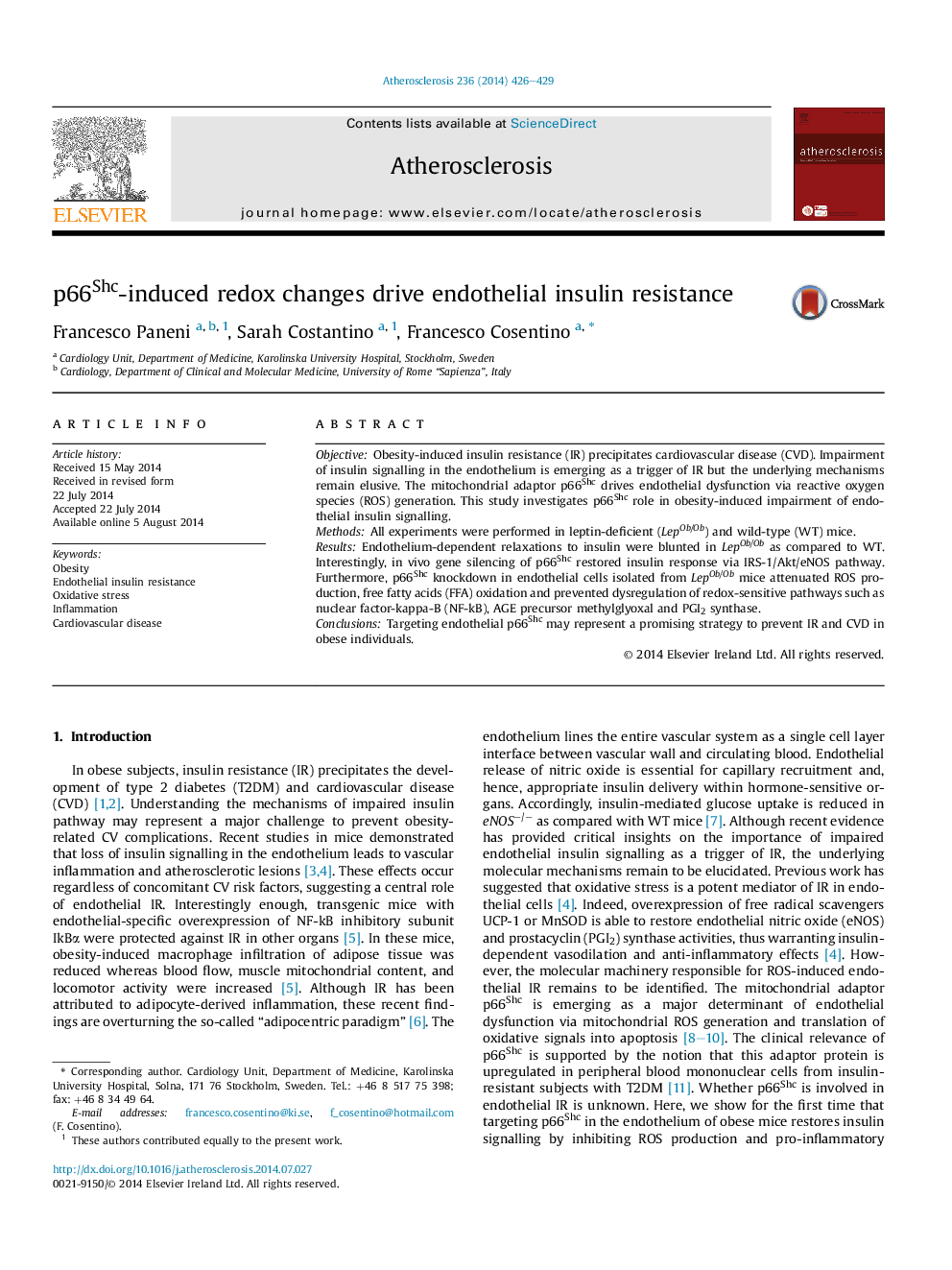| Article ID | Journal | Published Year | Pages | File Type |
|---|---|---|---|---|
| 5945609 | Atherosclerosis | 2014 | 4 Pages |
ObjectiveObesity-induced insulin resistance (IR) precipitates cardiovascular disease (CVD). Impairment of insulin signalling in the endothelium is emerging as a trigger of IR but the underlying mechanisms remain elusive. The mitochondrial adaptor p66Shc drives endothelial dysfunction via reactive oxygen species (ROS) generation. This study investigates p66Shc role in obesity-induced impairment of endothelial insulin signalling.MethodsAll experiments were performed in leptin-deficient (LepOb/Ob) and wild-type (WT) mice.ResultsEndothelium-dependent relaxations to insulin were blunted in LepOb/Ob as compared to WT. Interestingly, in vivo gene silencing of p66Shc restored insulin response via IRS-1/Akt/eNOS pathway. Furthermore, p66Shc knockdown in endothelial cells isolated from LepOb/Ob mice attenuated ROS production, free fatty acids (FFA) oxidation and prevented dysregulation of redox-sensitive pathways such as nuclear factor-kappa-B (NF-kB), AGE precursor methylglyoxal and PGI2 synthase.ConclusionsTargeting endothelial p66Shc may represent a promising strategy to prevent IR and CVD in obese individuals.
